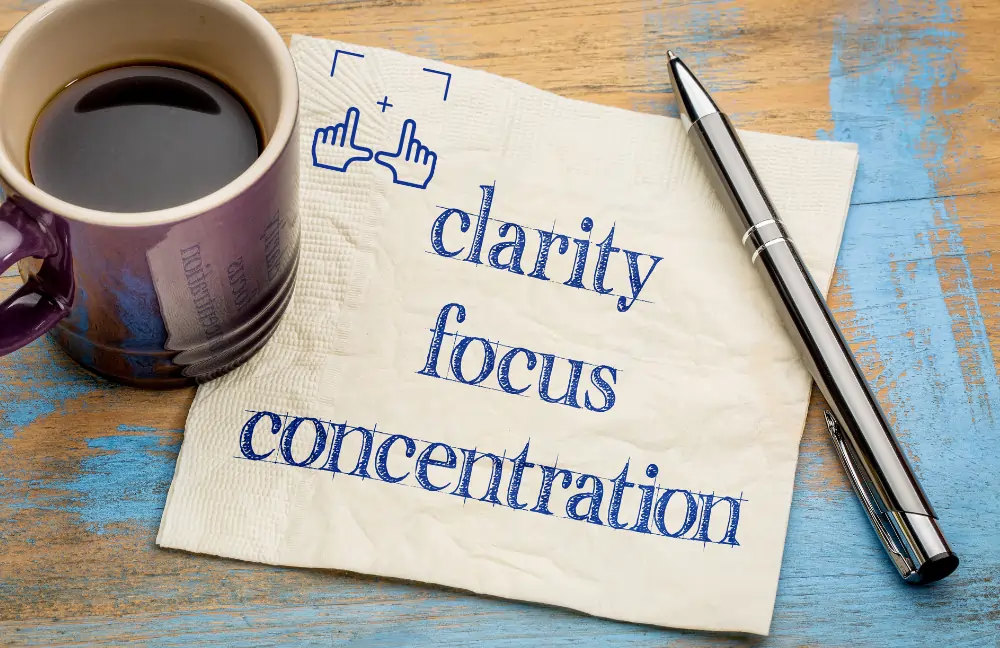What is a Negative Thought?
All your moods are created by your thoughts. All your thoughts are amenable to change if you control them well.
- Shefali Batra
Why Do We Get Negative Thoughts?
The human brain is unfortunately (or fortunately) pre-wired for negativity. 80 percent of everyone’s thoughts are proposed to contain something destructive or purposeless. Our brain is as if continuously seeking problems so that we can fix them.
Like an evolutionary tradition, as old as humanity itself, negative thoughts sound like a normal companion in life’s journey. The truth is, evolutionally we had to think about everything undesirable in order to prepare for the worst. Survival demanded it. If we did not prepare, we would die. But today we don’t face those kinds of survival threats on an everyday basis. Yet we react similarly.
Why Are Negative Thoughts a Problem?
The negative thought itself is actually not the main problem. Believing that it is true, is what brings on undesirable outcomes. Always thinking in extremes, assuming the worst and reacting to it like it has already happened, polarized thinking, rigid unshakable discerning; all of this can make life unlivable.
And then, negative thoughts have an unrelenting stickiness to them. Like a polar opposite of your mind, they stick and don’t let go. They eat into happiness, peace, contentment and satisfaction.
Take for example, if you had to believe that you need [X] to be happy. And simply because you do not have [X] you continue to feel unhappy. [X] can be a palatial home, a dream job, a coveted life partner or even good health. If you had to look around, there are plenty of people who do not have [X] and are still happy. And there are times in life when you did not have {X] and you were still happy.
Negative thoughts are baseless and not grounded in logic. But more than anything, the worst part about them is that they seem deceptively real and fool you. There is nothing more wasteful in life than a negative thought. You simply cannot live a positive life with a negative mind.
About Negative Thoughts
- Spontaneous and automatic
- Deceptively appear realistic
- Seem like they are logical
- Arouse negative emotions
- Eat into peace and happiness
Fight Negative Thoughts
- Look for supporting evidence
- Question their legitimacy
- Consider alternate options
- Think in shades of gray
- Stop imagining the worst
Where Do Negative Thoughts Originate?
You live all through life with beliefs or schemas, about the world, yourself, and life in general. These are set patterns of thinking that evolve over time, and get engrained in your mind based on your previous experiences or observations. Memories and learning from the past give rise to specific automatic thought patterns or biases. Because something happened before, you believe it will happen again.
Sometimes these are useful because generalization does make life easier. But overdoing this makes them dysfunctional and could be harmful. A negative thought feeds into maladaptive emotions and makes you indulge in problem behaviors. Nearly most problems in life arise from negative thinking.
What Do Negative Thoughts Do?
In general, people find it hard to believe that their thoughts, emotions and behaviors are interconnected. Truth is, the way you perceive a situation and think about it, influences your emotional reaction way more than that actual reality of it. You assume facts in your mind; but these could sometimes be personalized perceptions, hazed by clouded judgment.
If you keep thinking negatively, you endlessly perceive adverse emotions and continue to feel unhappy, frustrated, depressed or anxious in life. It is important to engage in thoughts that are rational and true-to-life. Fundamentally, if you change the way you think, you will change the way you see the world as well as your problems; and your responses to them will accordingly transform for the better too.
How Can You Change Negative Thinking?
Your thoughts write the story of your life. When you tell yourself about your day, how it went, who you met, what they said, how you reacted to it and how it made you feel; you’ll realize that your entire life is filled with nothing but your thoughts. You misconstrue that it’s people, events, accomplishments, failures, rewards, setbacks, gains and losses that determine how you feel. None of these have any hold over your emotions. How you think about all of these, influences your emotions. When you change your thoughts, you change everything.
You have to tackle the software in your brain to get rid of bugs and function optimally. Without the useful tool of mindfulness, you cannot level up your game. You just have to work on your mind to be more focused, decisive, and certain about what you want out of life, and then work towards achieving it.
Worry, sadness, frustration, all are predominantly felt verbally, as if you are talking to your own self about possible negative outcomes. This makes thoughts a very important part of the worry equation. In one research when worriers were compared to non-worriers, the worriers narrated many more negative thoughts than non-worriers narrating any thoughts at all; positive or negative.
More verbal worry leads to more intrusive imaginations and creative catastrophizing. That is why negative thoughts need to be stamped. Especially in the recent past, the status of people’s mental heath in the pandemic has dropped. Relaxation and unwinding is imperative to prevent stress from turning into more serious anxiety or depression.
This audio will guide you to think about your negative thought and reframe it, so that you don’t see it as negative anymore. Negative thoughts are always distorted versions of reality. When you untwist them, you begin to see how simple life really is and how beautiful your interactions can become.
I hope this audio helps you untwist the negative thought that’s worrying you, and brings on a sense of neutrality and peace. Happy listening!
References
- Eagleson, C., Hayes, S., Mathews, A., Perman, G., & Hirsch, C. R. (2016). The power of positive thinking: Pathological worry is reduced by thought replacement in Generalized Anxiety Disorder. Behaviour research and therapy, 78, 13–18.
- Kertz, S. J., Koran, J., Stevens, K. T., & Björgvinsson, T. (2015). Repetitive negative thinking predicts depression and anxiety symptom improvement during brief cognitive behavioral therapy. Behaviour research and therapy, 68, 54–63.
- Metzger, R. L., Miller, M. L., Cohen, M., Sofka, M., & Borkovec, T. D. (1990). Worry changes decision making: the effect of negative thoughts on cognitive processing. Journal of clinical psychology, 46(1), 78–88.







